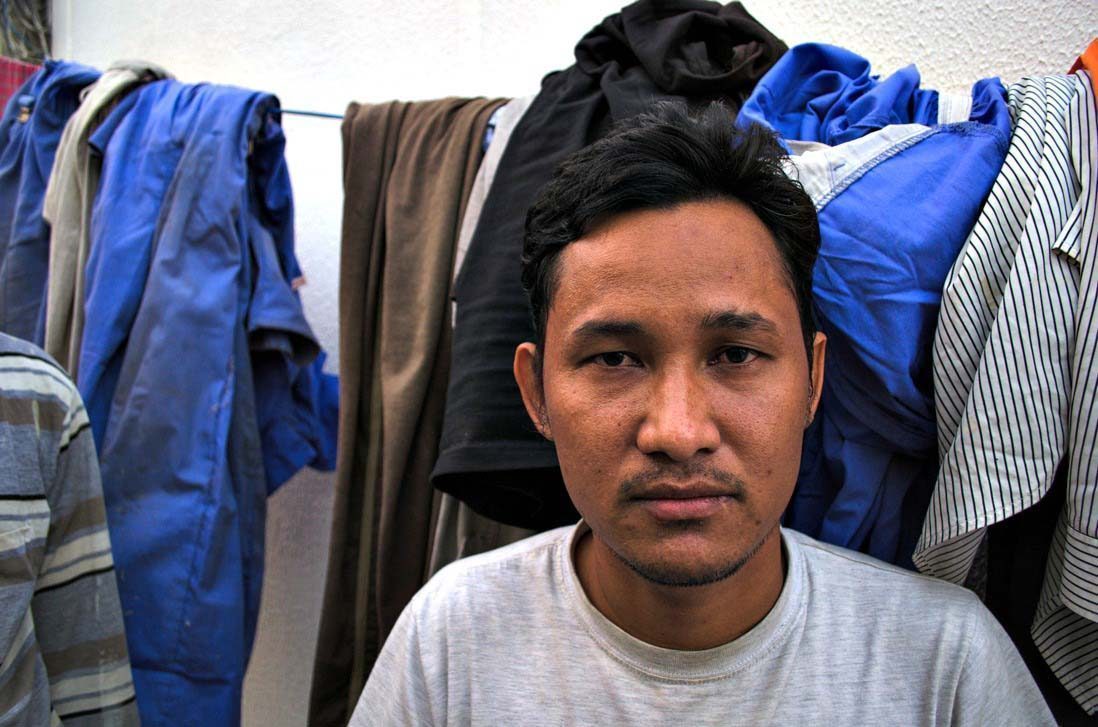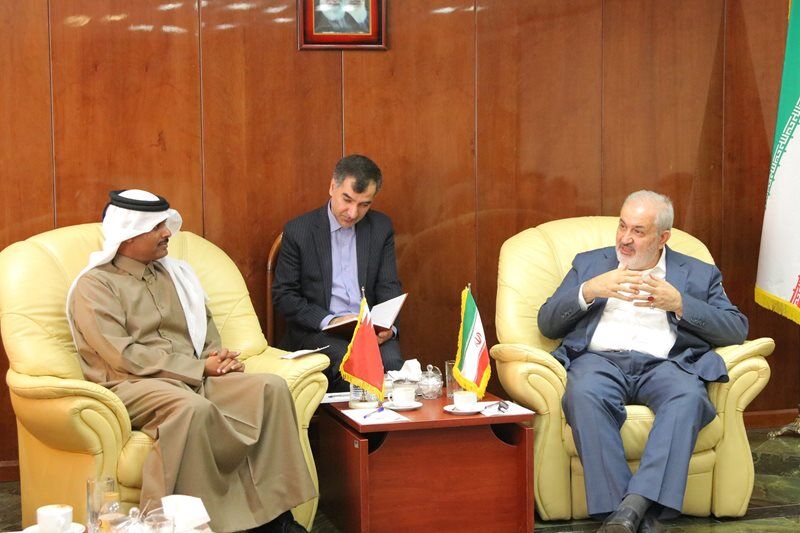
Dozens of construction workers in Qatar who have been struggling to recover more than a year’s worth of unpaid wages from their former employer now have a new worry to contend with – eviction.
According to Amnesty International, roughly 80 former employees of Lee Trading and Contracting are now being told by their Al Sailiya landlord that they must pay their rent or get out.
In December, Amnesty said that the workers, who hail from Bangladesh, China, Nepal, Nigeria and the Philippines, have not been paid their monthly salary in approximately a year and are collectively owed QR1.5 million (US$411,000).
Whatever money they scrape together is spent on water delivery and sewage collection, Amnesty researcher James Lynch told Doha News, adding that their landlord has also not been paid.
Safety net needed
The Qatari government is aware of the situation, and the Ministry of Interior has promised the workers no-objection certificates, which would allow them to seek out other jobs in the country, Lynch said.
The workers have been surviving on food donations from the community and a local charity at the request of the Ministry of Labor, he added.
“They’ve just been keeping things afloat.”
But because Lee Trading – a firm that outfitted the interiors of many high-end developments including the Torch Hotel, Qatar Sports Club and the Al Bidda office tower in Dafna – is no longer operational, claiming unpaid wages has been problematic.
The workers’ situation is not unique, and raises questions about the financially precarious situation low-income expats are put in when their employer – who is also typically their immigration sponsor – goes under.
“This situation happens too often,” Lynch said.
Company history
At its peak from 2008 to 2011, LTC employed more than 600 contractors, according to a former member of the company’s office staff who spoke to Doha News on the condition of anonymity.
The man said he is owed between QR150,000- QR170,000 ($41,191-$43,112) in unpaid wages for the last 10 months, and is also being asked to vacate his home by his landlord.
“The company was doing quite well,” the expat said. “We had good projects (and were) highly profitable … We had a lot of faith in the company.”
Financial problems started to appear more than a year ago following the departure of a senior member of the company’s accounting team, the office staff member said. Payments from one project were used to pay off expenses for others, and there were delays in compensating staff.
Meanwhile, the company was constructing a QR4-million ($1.1 million) business center on Grand Hamad (Bank) Street, just north of the large crossed swords monument.
The 800sqm facility would allow businesspeople to rent space by the day, and give them easy access to in-house translators, administrators, drivers and high-tech equipment.
“Everything that was coming into the company was used to complete that project,” the former employee said, adding that it was never occupied.
Eventually, unpaid employees stopped showing up for work, he said, adding that police officers came to the office one day last year to arrest the company’s general manager on allegations of issuing bad checks. The firm’s Qatari sponsor has not been seen or heard from since, and is believed to have left the country.
Remedies
The first step in recovering unpaid wages here involves filing a complaint with the Ministry of Labor. According to Amnesty’s recent report on migrant worker abuse in Qatar, the case is then referred to Labor Court if the ministry cannot facilitate a settlement.
There, complainants are typically asked to pay a charge of QR600 ($165) for an expert report to look into the details of the case.
Judges apparently have the authority to waive this fee – which can be prohibitively expensive for low-income workers – but Amnesty said it is not clear what criteria is used.
“It is a huge barrier to justice,” Lynch said.
The court rejected all of the requests made by LTC workers to waive the fee, effectively stalling their cases, he said. Lynch said the government shouldn’t hold up court cases solely because workers are unable to afford the fees.
He is also encouraging officials to work with members of the business community to develop a financial safety net so that workers receive the money owed to them even if their company goes bankrupt.
Amnesty does not have a specific recommendation on what this should look like, but said forcing companies to keep a certain level of financial reserves on hand or establishing a government fund to pay workers their unpaid wages are two options that could be considered.
“(A firm’s) cash-flow situation shouldn’t leave workers in the lurch like this,” Lynch said.
The LTC office worker said he paid the QR600 fee and that his case is slowly proceeding, with another hearing scheduled for Tuesday, Feb. 4. In the meantime, he continues to live in Qatar on an expired visa and said he feels “trapped.”
“If if was one or two months salary, maybe we could move on,” he said. “All of us are wishing we can close the subjects, have our salaries paid and move on with our lives.”
Thoughts?







